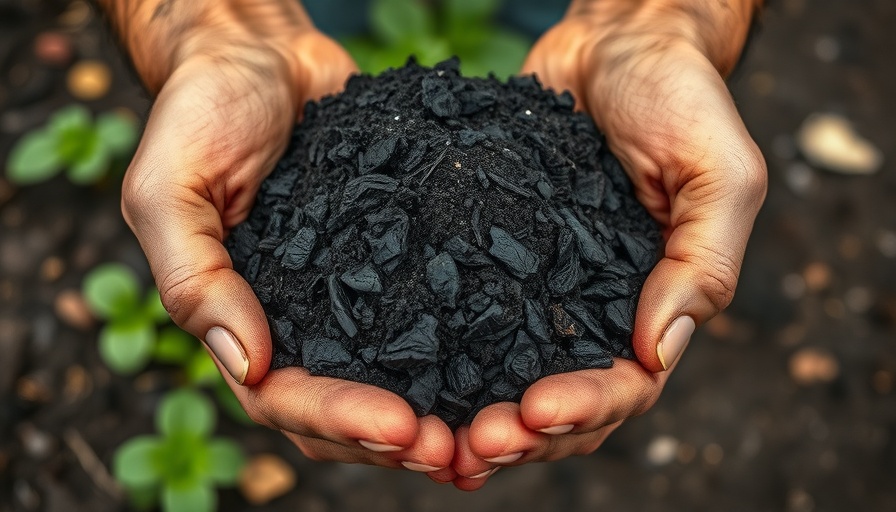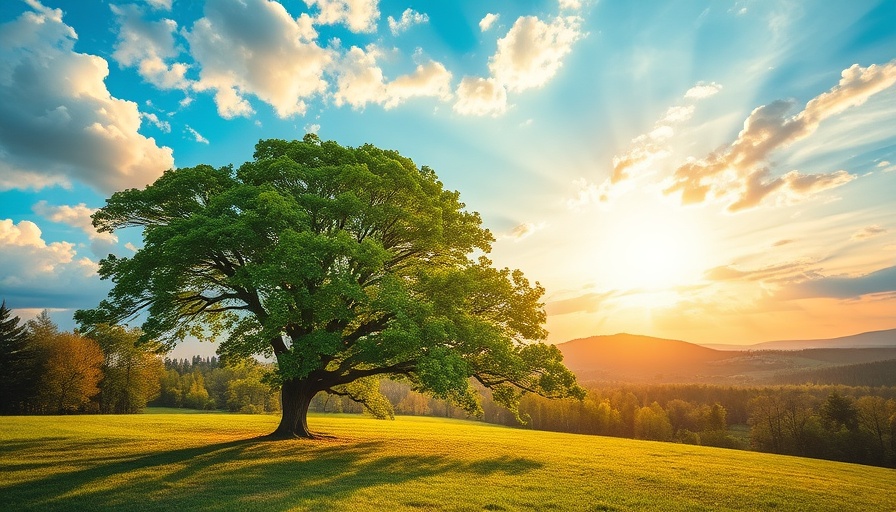
Understanding Biochar: A Gardener’s Ally
In the world of home gardening and sustainable landscaping, biochar is emerging as a powerful ally. But what exactly is biochar? Derived from the pyrolysis of organic materials like wood, agricultural residues, and other biomass, biochar is a charcoal-like substance that, when added to soil, can significantly enhance its quality. Its properties not only improve soil health but also help in sequestering carbon, making it a dual-benefit addition to gardens.
Why Biochar is Beneficial for Your Garden
As urban and suburban homeowners looking for effective gardening solutions, you might be wondering about the specific benefits of incorporating biochar into your soil. Research suggests that biochar can boost nutrient retention due to its porous structure that holds moisture and essential minerals. It's like giving your plants the ideal sponge to soak up water and nutrients.
Furthermore, biochar encourages beneficial microbial activity in the soil, promoting a vibrant ecosystem that supports healthy plant growth. Those who practice organic gardening should take note: biochar can also mitigate soil acidity, benefitting a wider variety of perennial plants.
Environmental Impact and Sustainability
Beyond its applications in individual gardens, biochar presents a compelling argument for sustainability. Its production not only utilizes waste materials but also offers a way to reduce greenhouse gas emissions. When organic materials decompose naturally, they release methane, a potent greenhouse gas. Using these materials to create biochar both prevents methane release and stores carbon in a stable form.
Implementing Biochar in Your Garden
For those interested in trying biochar, consider how it can seamlessly integrate into your existing gardening methods. One effective approach is to mix biochar into your raised bed gardening setup: combine it with compost and soil at a ratio of 1:10 to start. Alternatively, gardeners using composting methods can create biochar-infused compost by layering biochar with kitchen scraps and green materials. This practice not only enriches your soil but also helps your plants thrive.
Small space gardening aficionados should also take heart. Biochar's lightweight nature and ease of application make it ideal for balconies and urban plots alike. It can promote more efficient water usage, allowing for lush greenery even in the smallest of spaces.
Common Misconceptions About Biochar
Despite its advantages, misconceptions about biochar persist. A common myth is that biochar only works in specific types of soils or is too complicated for novice gardeners. In reality, biochar is adaptable; it improves nearly any soil type and can be used in various gardening designs, from vegetable gardening to ornamental landscapes.
Another misconception is that biochar is a miracle cure-all. While it offers great benefits, it should be used as part of a holistic approach to garden care that includes proper watering, diverse planting, and healthy composting practices.
Looking Ahead: The Future of Gardening with Biochar
As we continue to face environmental challenges, the use of sustainable practices, such as biochar application in gardening, will likely increase. Gardens will play an essential role in sequestering carbon and promoting biodiversity. Those who embrace these practices will not only enhance their own home gardens but also contribute to the global movement toward healthier, more sustainable living.
Ultimately, understanding and utilizing biochar can empower home gardeners to cultivate thriving gardens while actively participating in environmental stewardship. The act of gardening itself becomes a journey of learning, growth, and connection with the Earth.
For those looking to take the next step in enhancing their garden, consider incorporating biochar into your gardening practices today. Discover the benefits it can bring to your sustainable gardening journey and inspire others to follow in your footsteps!
 Add Row
Add Row  Add
Add 




 Add Row
Add Row  Add
Add 

Write A Comment